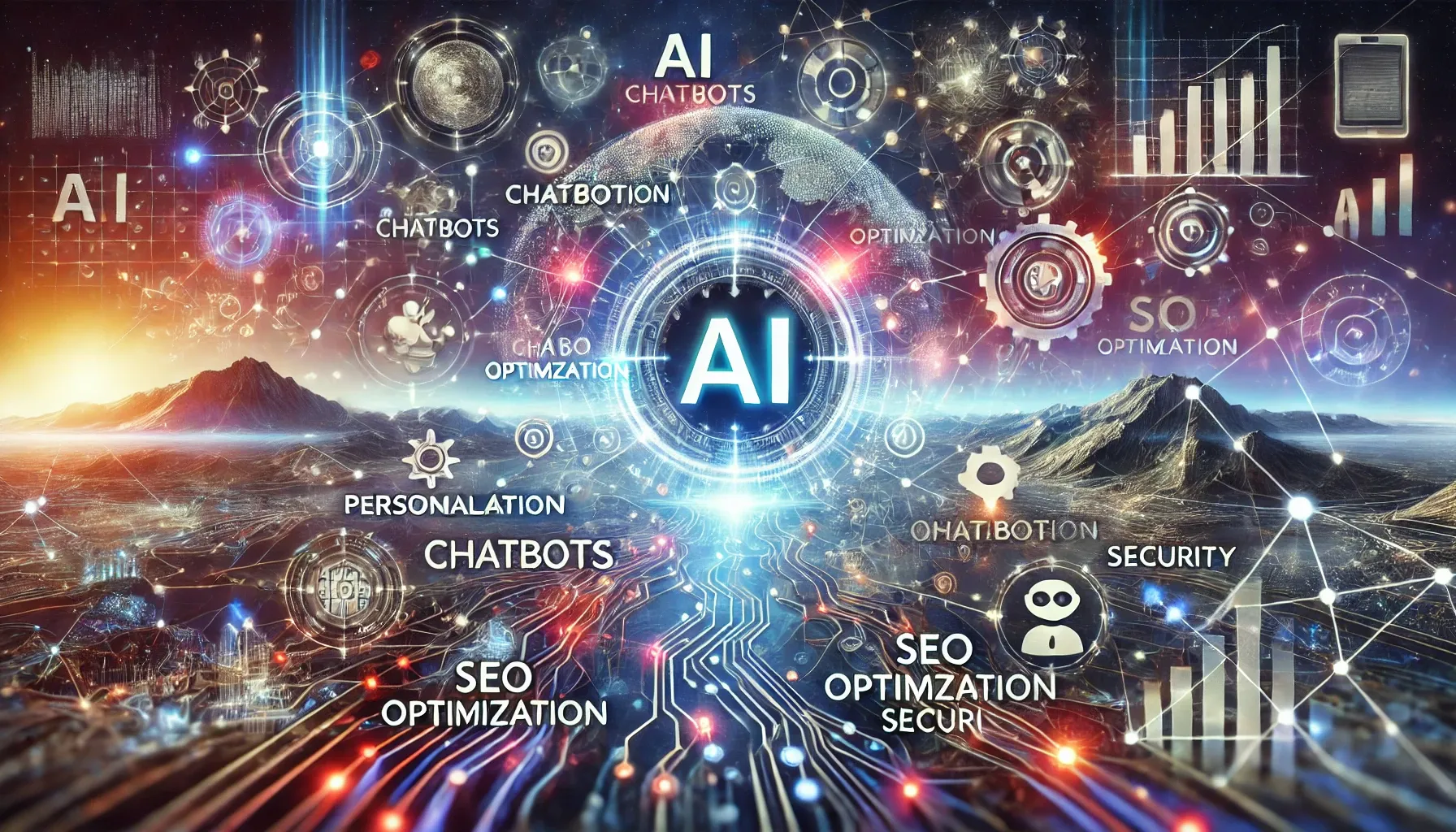
Artificial Intelligence (AI) is revolutionizing website development, empowering businesses to create smarter, more personalized, and efficient digital platforms. By integrating AI, websites are becoming adaptive and capable of delivering exceptional user experiences. Here’s how AI is reshaping the landscape of website development:
AI analyzes user behavior, preferences, and past interactions to deliver personalized content, recommendations, and layouts. This tailored approach enhances user engagement, builds loyalty, and drives conversions.
Example: E-commerce websites suggest products based on browsing history and purchase patterns, improving the shopping experience.
AI-powered chatbots provide instant, round-the-clock customer support. They assist users with queries, navigation, and complex tasks, reducing response time and operational costs while boosting customer satisfaction.
Example: A healthcare website chatbot helps patients book appointments or locate the right specialist effortlessly.
AI tools streamline the process of creating engaging and relevant content for websites, from blogs to email drafts. These tools save time while ensuring that content aligns with the audience’s preferences.
Example: Platforms like Jasper or ChatGPT generate compelling product descriptions or marketing copy in seconds.
AI tools analyze search trends, optimize website content, and provide actionable insights for better rankings. By predicting user behavior, AI empowers businesses to make data-driven decisions.
Example: Tools like SEMrush or Moz suggest keyword improvements and highlight optimization opportunities.
With the rise of smart assistants, AI enables websites to adapt to conversational voice search queries, making navigation more intuitive and accessible.
Example: A voice-enabled retail website responds seamlessly to spoken commands, enhancing the user experience.
AI automates testing processes, identifies bugs, and predicts potential issues before they occur. This reduces downtime and ensures consistent website performance.
Example: Tools like Testim use AI for efficient web application testing, accelerating development cycles.
AI-powered visual and voice interfaces make websites more inclusive and user-friendly. This is particularly valuable for accessibility and enhancing navigation.
Example: Retail websites allow users to search for products by uploading images, creating a hassle-free shopping experience.
AI enhances website security by monitoring traffic, identifying vulnerabilities, and blocking cyber threats in real time.
Example: AI systems detect and mitigate malicious bot activities, ensuring safe and reliable browsing.
The integration of AI in websites is no longer a luxury but a necessity in today’s digital-first world. From personalized user experiences to advanced security measures, AI empowers businesses to innovate and stay ahead of the competition. By leveraging AI, websites become adaptive, intelligent, and capable of meeting the ever-evolving needs of users, setting a new standard for digital excellence.

Don't miss out on the latest news and updates from Techmines Technologies LLP! Subscribe to our newsletter and stay up-to-date on our latest services, web development trends, SEO strategies, and much more. Sign up now and be the first to know!
India Address :
427 , 5 Square Point, M.V Circle,
opp. Anjani Green Party Plot, Jahangir Pura,
Surat, Gujarat 395005
Phone :081416 35874
Email :info@techmines.co.in
© 2024 Created By Techmines Technologies LLC